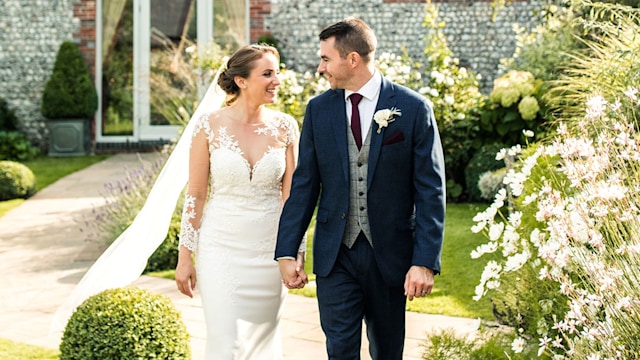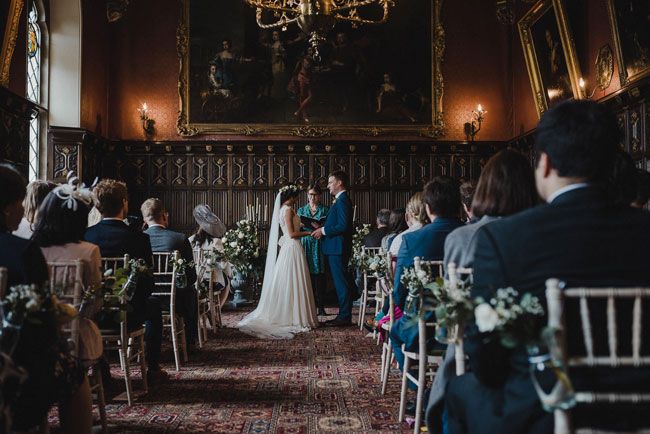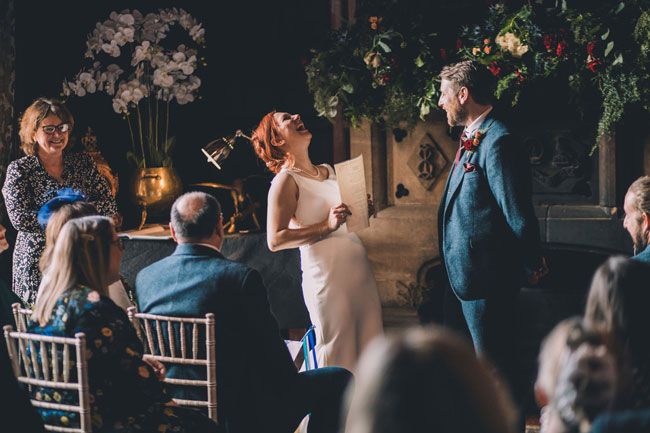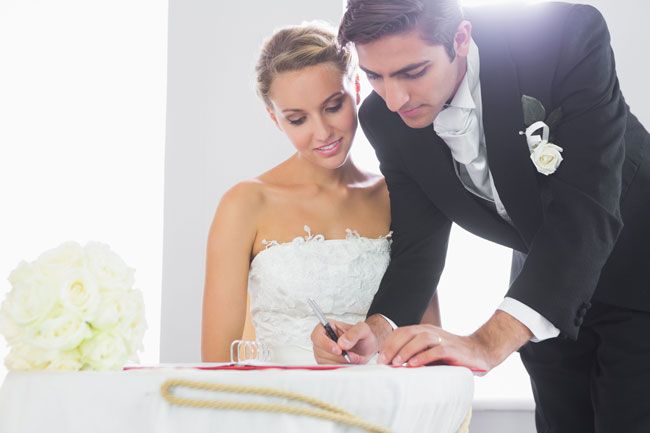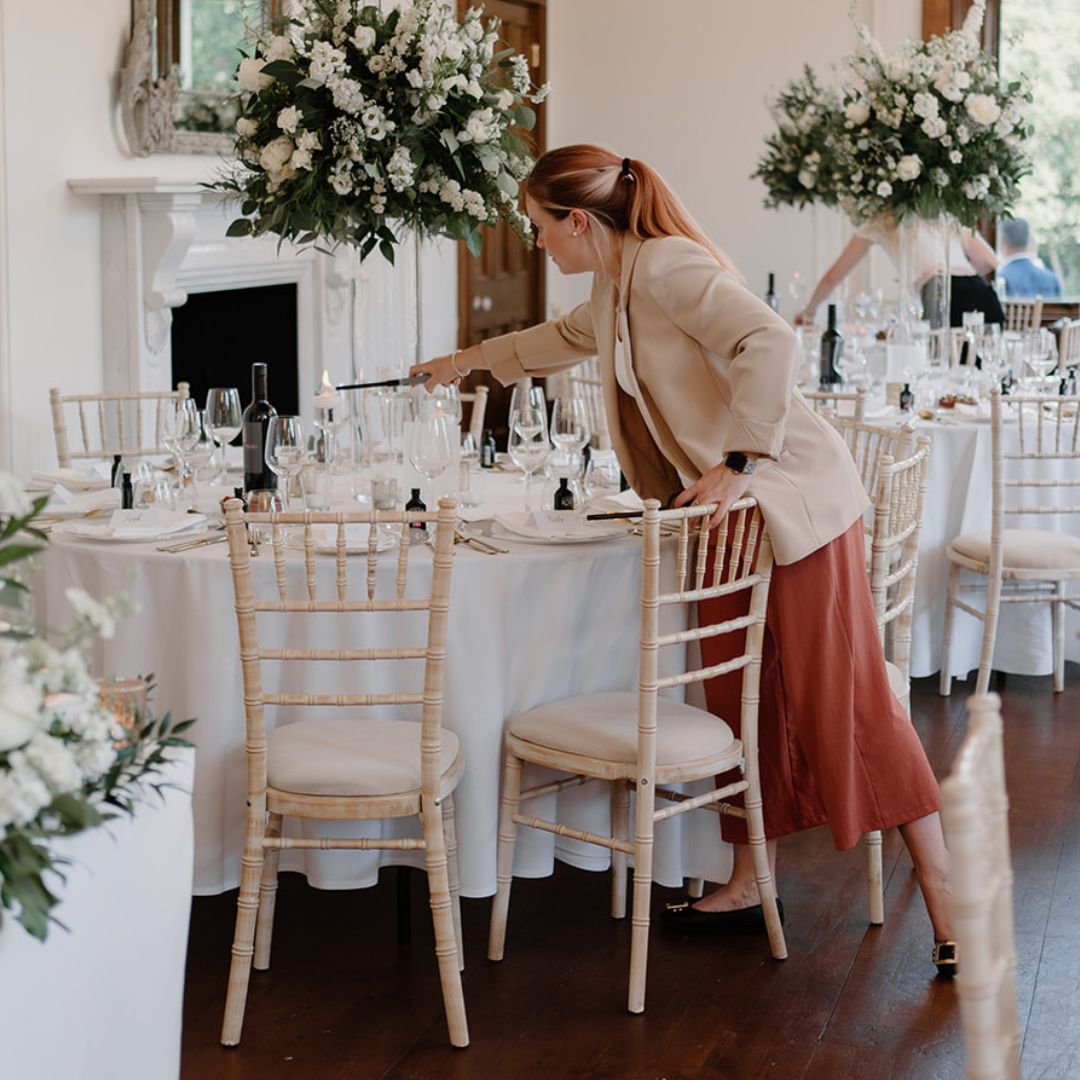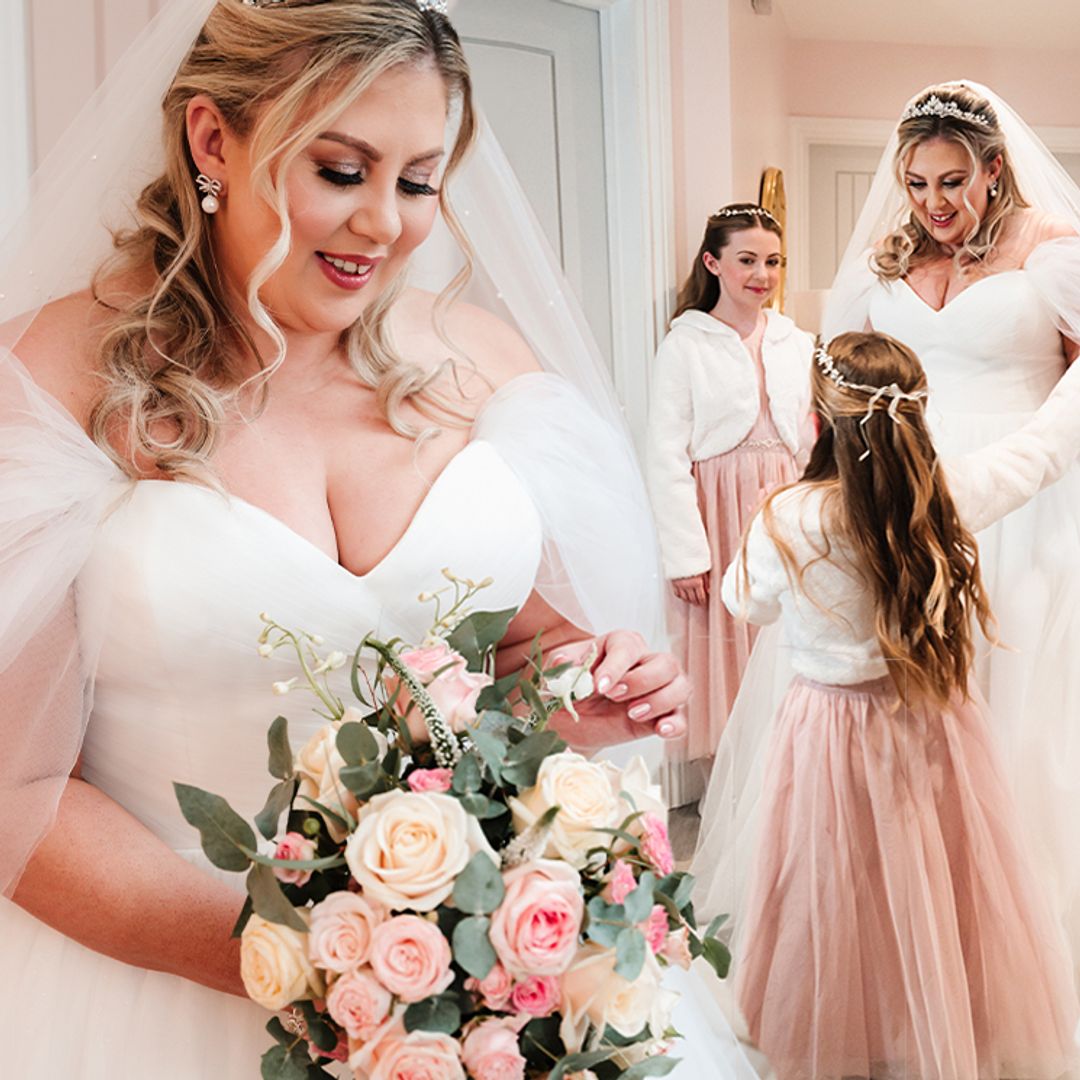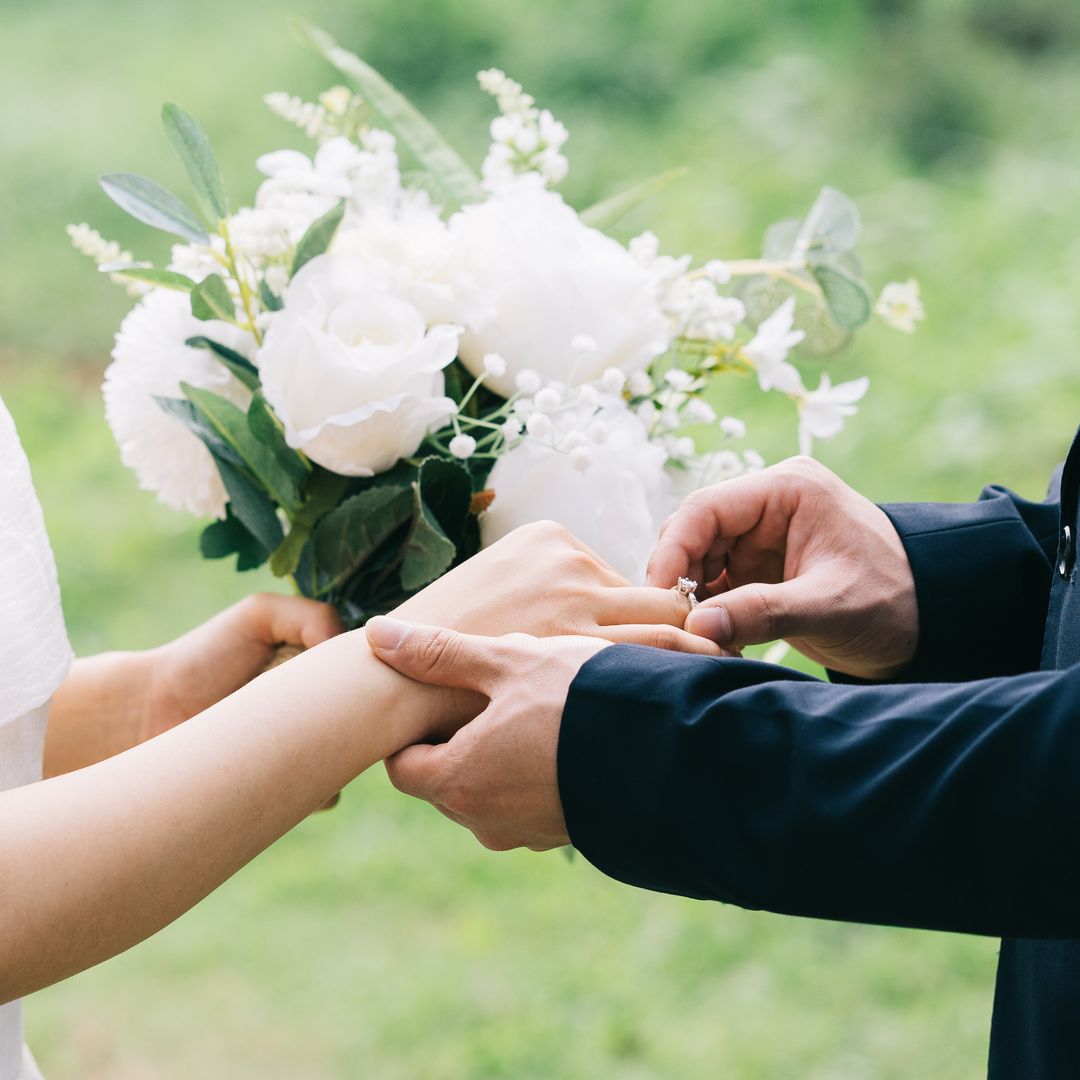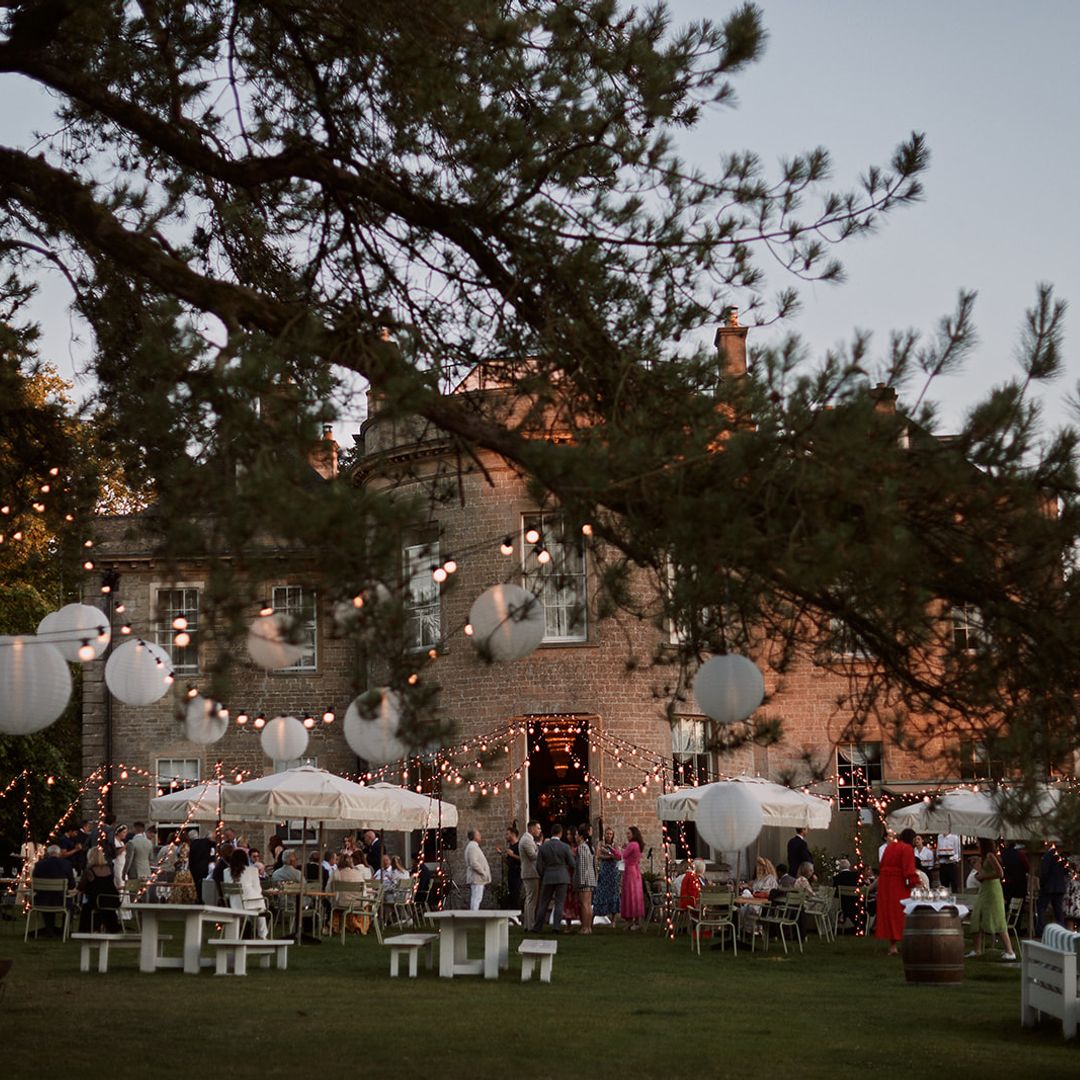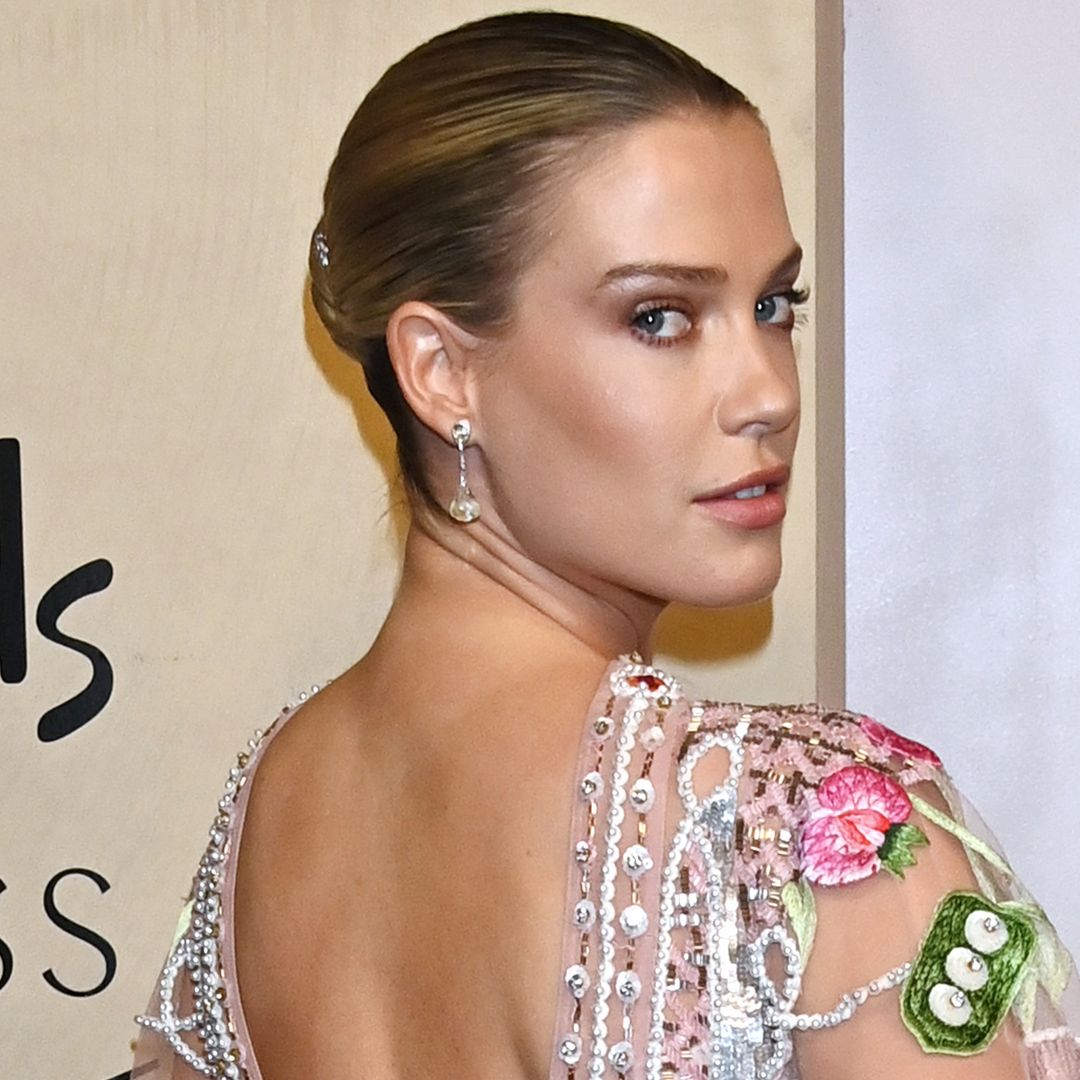Dress shopping and wine tasting may be parts of wedding planning that you are very much looking forward to, but how about the legal side of things? It can be a real minefield of rules, regulations and technical terms, but wedding celebrant Frances Cave of Fanfare Ceremonies has everything you need to know about the surprising legalities of getting married…
MORE: 15 questions you shouldn't be afraid to ask your wedding venue
You don't have to legally marry at your wedding ceremony
Hosting a wedding ceremony is actually different from legally 'getting married'. Frances explains: "A wedding is ceremonial and therefore there is no requirement to have the legal part done at the same time. In fact, you can have them done before or after at a totally different time and place. You could even have a wedding ceremony without giving notice."
By keeping the legal tying of the knot separate from the celebration, couples will then have more choice when it comes to the person who marries them and the venue they choose to get married in.
Your wedding ceremony can take place on a different day to the legal part
You can't get legally married without 'giving notice'
Once you intend to get married, you have to give notice at your local registry office and Frances explains that it is "valid for 12 months" and the document will be "displayed for the public to see and anyone can come forward if they know of any legal reason why you shouldn’t be getting married."
You are officially married before signing the marriage certificate or kissing
There is a legal declaration which must be said when getting married. Frances sets out the usual protocol: "Traditionally the groom would speak first or if a same-sex couple, the eldest first."
REVEALED: The real cost of being a wedding guest - and how to save money
MORE: 5 most embarrassing wedding moments to avoid on your big day
The words both parties have to say are: "I declare that I know legal reason why I… may not be joined in marriage…" and then they go on to recite: "I take you to be my wedded wife/husband."
Surprisingly, it's when the second partner says the set of contracting words that a couple is married in the eyes of the law and not when they sign the certificate or kiss.
Any couple is legally married after the exchanging of specific vows
There are two types of legal wedding ceremony
You can get officially married at the registry office with a basic statutory ceremony or you can have the full ceremony at approved licensed venues. Frances reports the difference: "The statutory ceremony (also known as the 2+2 ceremony) just includes the legal elements needed to contract a marriage, with two witnesses. It's the cheapest option and provides the flexibility to have a personalised bespoke ceremony officiated by a professional wedding celebrant. While the full ceremony is a generic template of a much longer script."
You won't get an official marriage certificate on the day
England and Wales' wedding rules have recently changed and now there is no physical signing of the register, instead it is done online. "No marriage certificate is issued on the day, so this is either posted to a couple later or picked up in person," said Frances.
The wedding register has now gone digital
You can change your name on your passport before your wedding
If you're changing your name and want to change your passport, you can do so three months before tying the knot. The gov.uk website explains: "You can apply for a passport in your new name up to three months before your marriage or civil partnership ceremony."
If you have a civil ceremony, it cannot contain any religious content
You'll have the choice of either a religious or civil ceremony, but if you go for civil then you are forbidden from using any religious music, hymns or readings.
Main image: Stephanie & Nicole Photography
Like this story? Sign up to our newsletter to get other stories like this delivered straight to your inbox.
